Members had the option to take the survey in English, French, or Spanish. For the first time, selected groups had the option to take the survey online instead of the traditional pen-and-paper method. More information about the 2022 survey methodology, downloadable graphics to create presentations, and other resources are available here.
A.A. groups and meetings welcome anyone with a desire to stop drinking. A.A. is for everyone, regardless of race, gender, sexual orientation, religion, income, or profession. There is no cost to attend meetings or be a member. Nonmembers are welcome to attend “open meetings.” Find meeting locations, types, and times on the A.A. Meeting Guide app.
What brings members to A.A.?
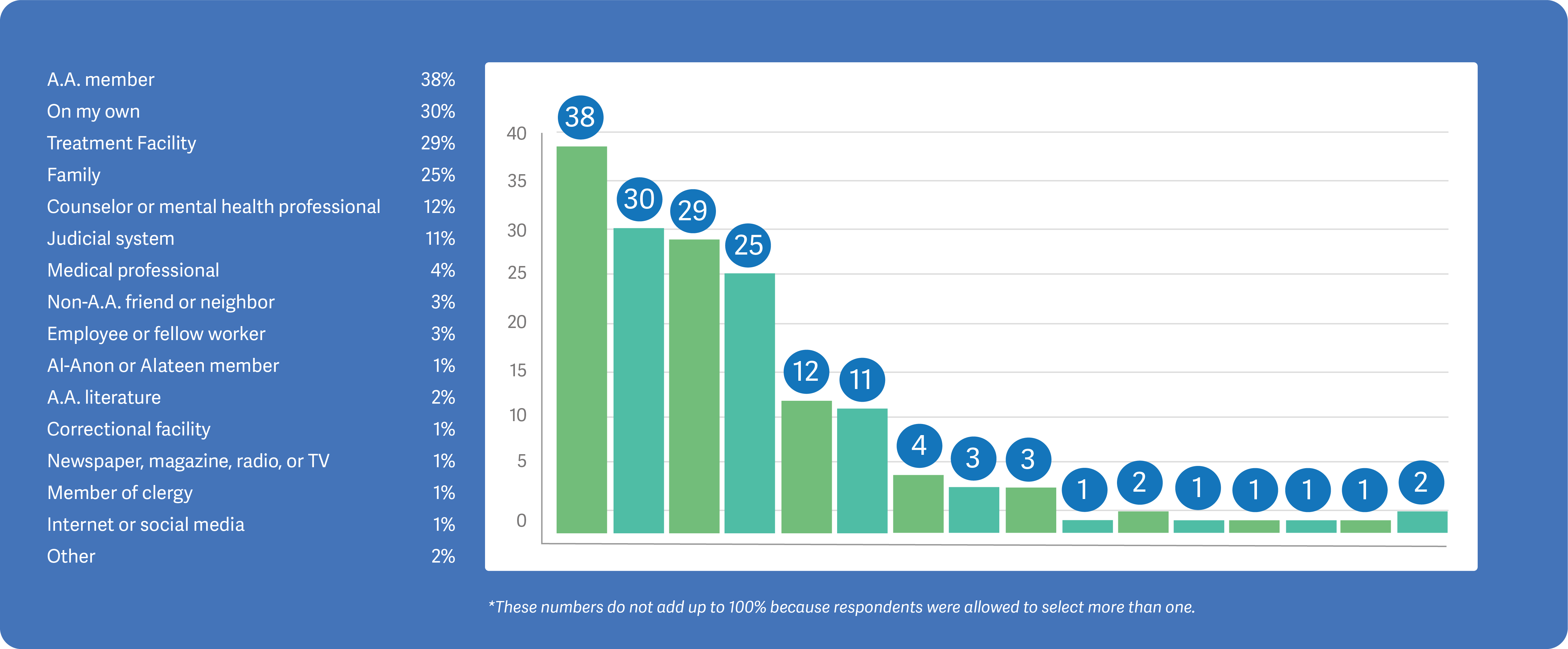
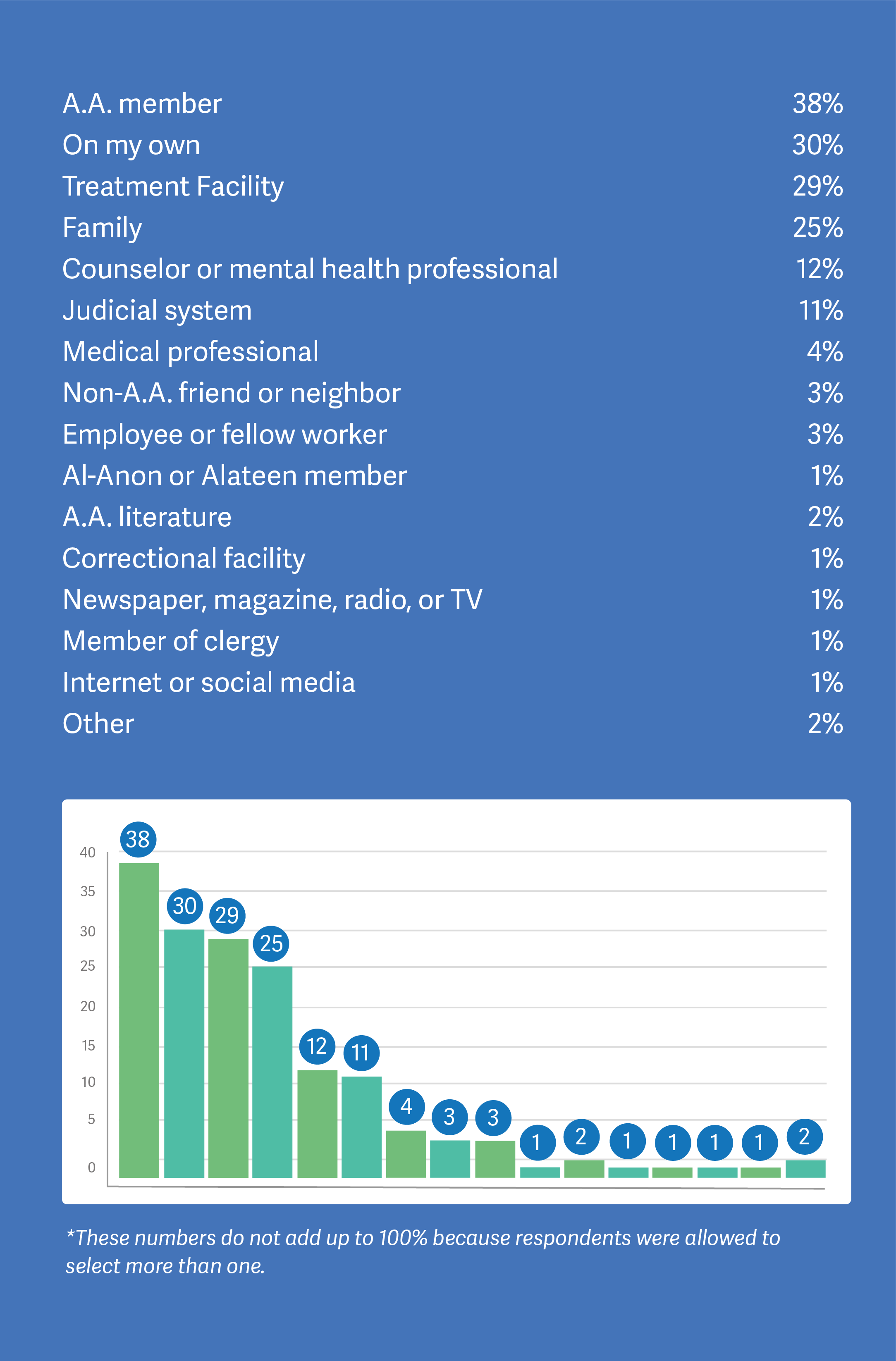

A.A. members take varied paths to their first meeting
While almost a third of members decide to attend their first meeting on their own, others find their way to A.A. in a variety of ways. They may have been encouraged by others already in the Fellowship, their families, or professionals, while others are influenced by a post on social media or a public service announcement on the TV or radio. Regardless of what brings them here, a remarkable effect takes place when an alcoholic asks for help, and an A.A. member shares their experience, strength, and hope.
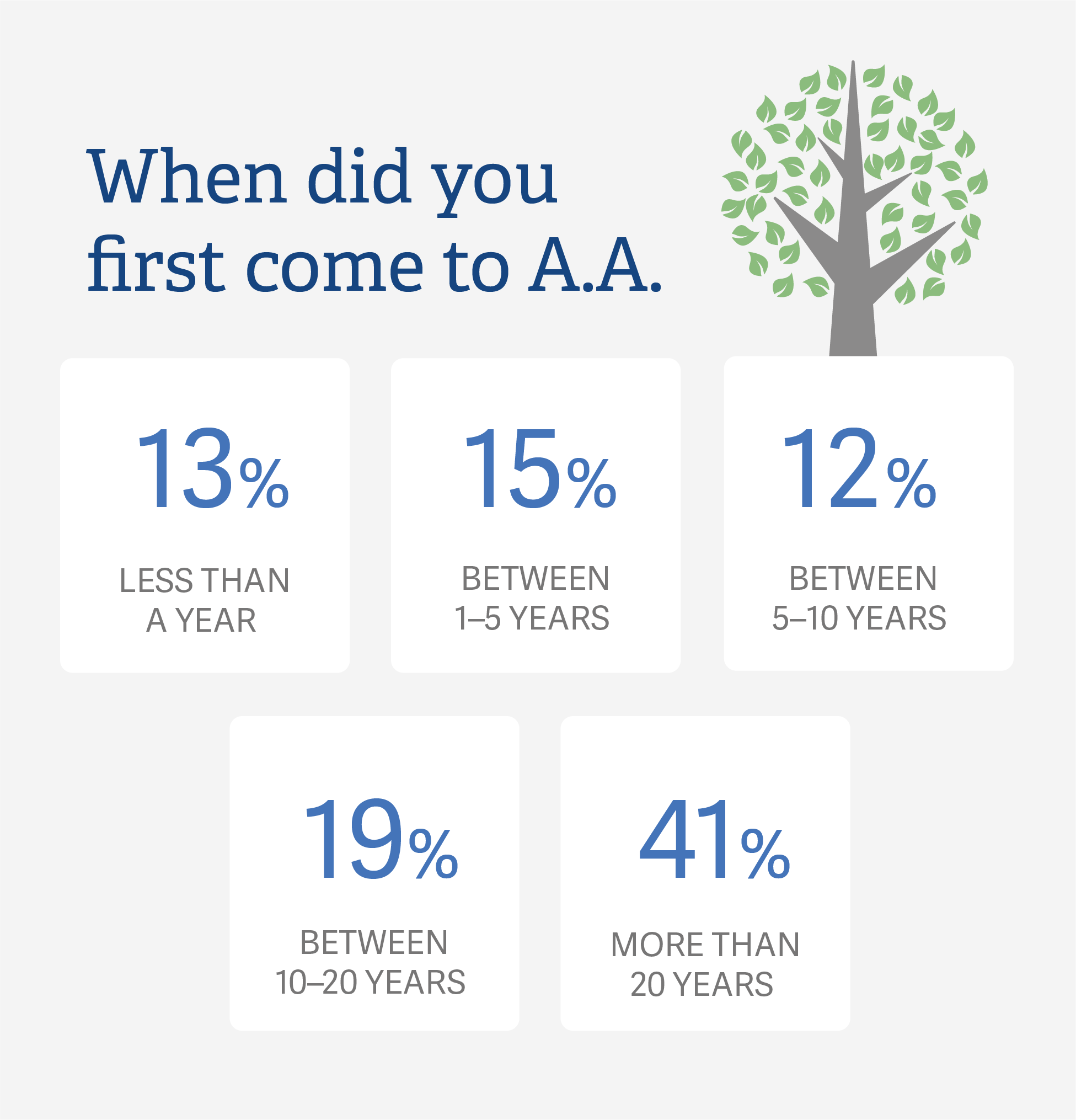
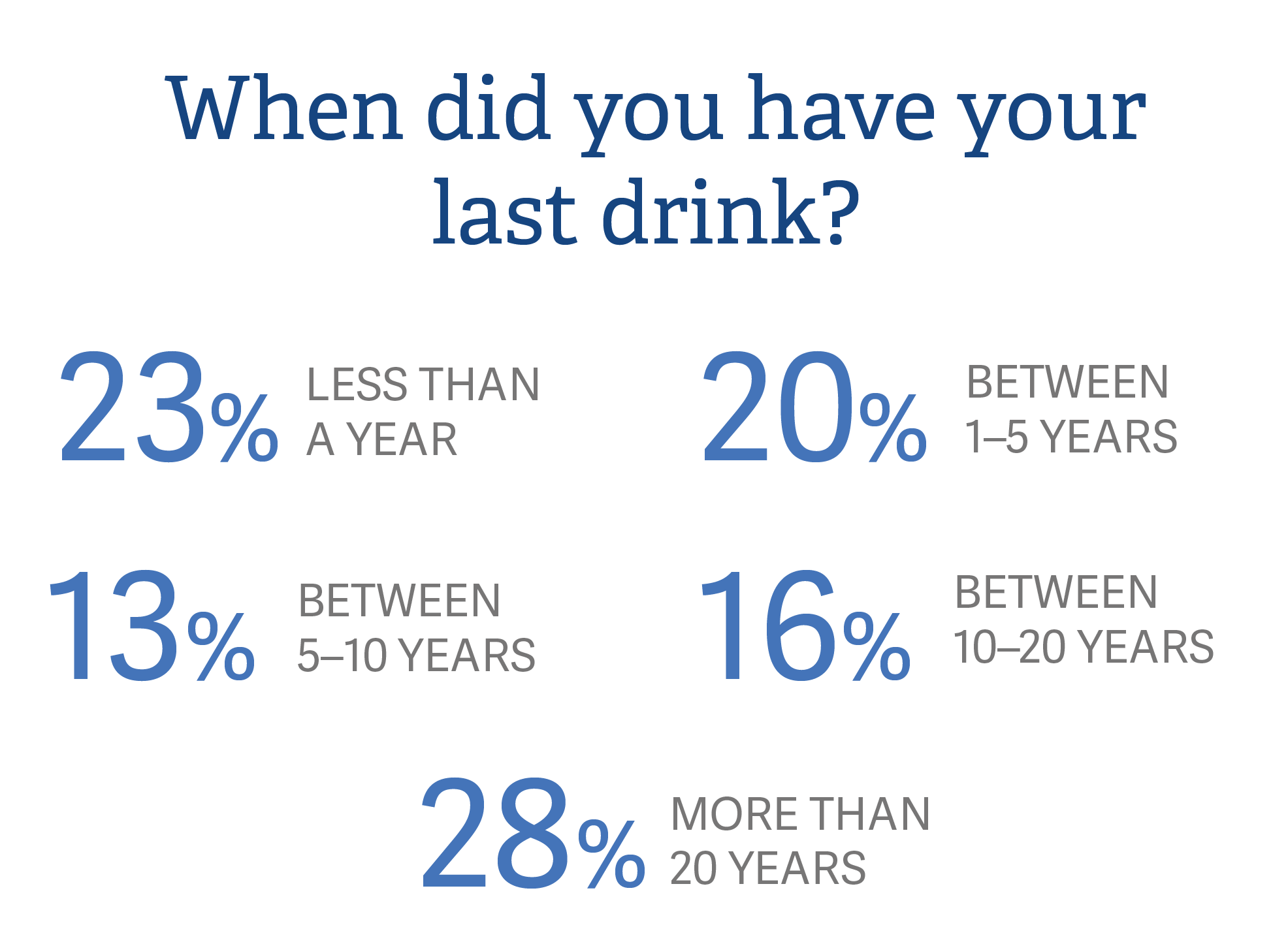
How long have members attended A.A. and stayed sober?
Every day, people seek a solution to their drinking problem at A.A. meetings. But they may not be ready, for various reasons, to admit they are “powerless over alcohol” and accept the help found in A.A. While some members get and stay sober from their first meeting, for others attendance at meetings plants a seed that takes root over time and brings them back to A.A., where they achieve sobriety. The only requirement for A.A. membership is the desire to stop drinking — whether it has been a day, a month, or a year since a member had their last drink.
What keeps members coming back to A.A.?
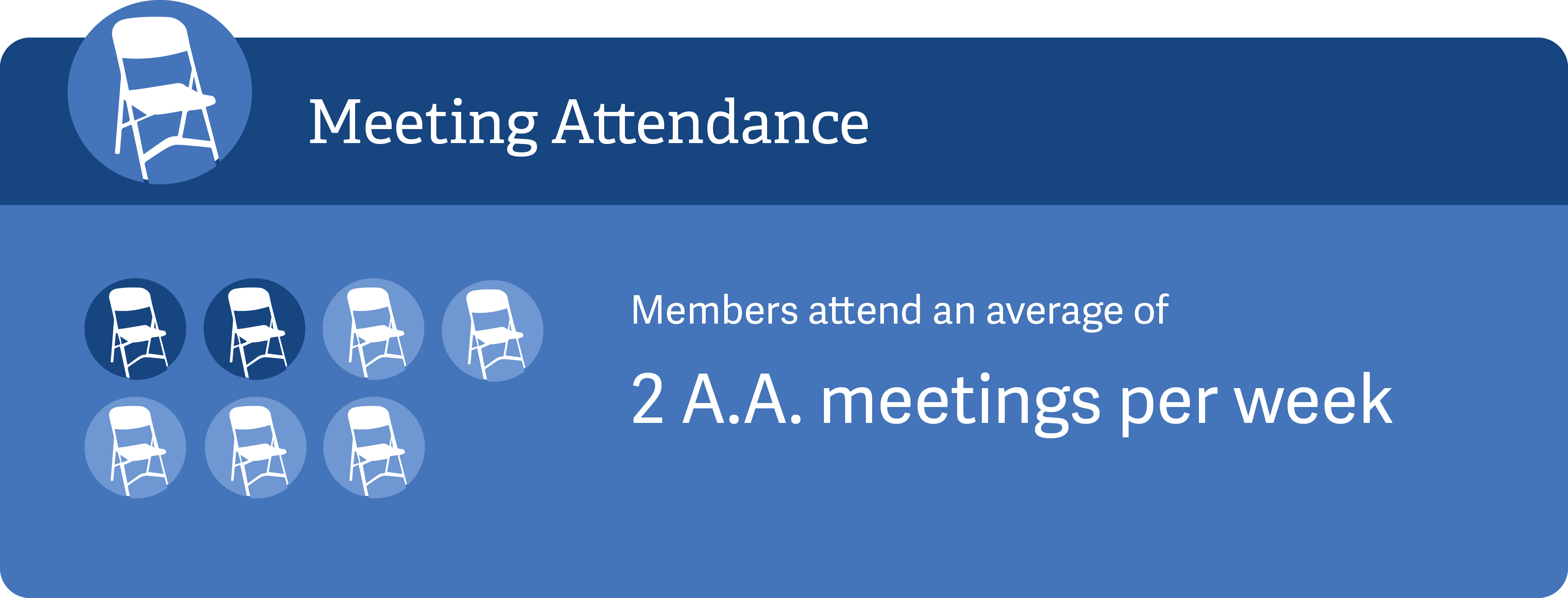
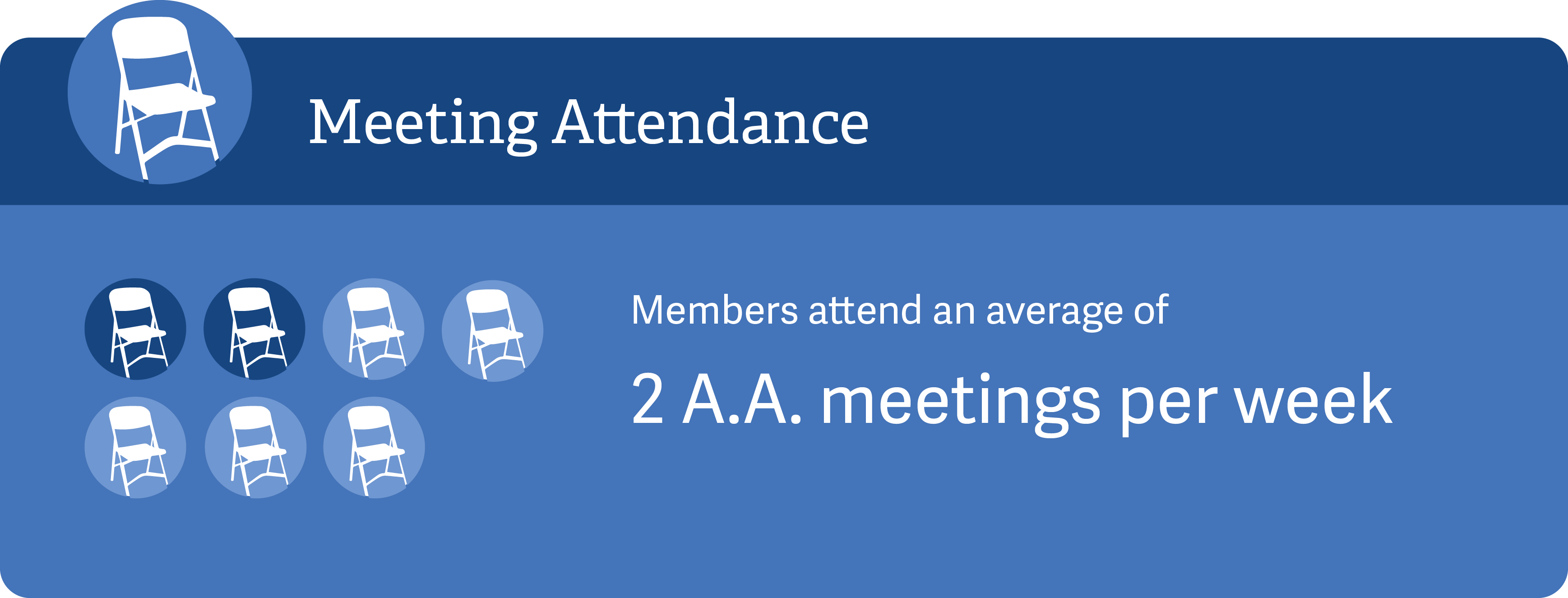

What types of A.A. meetings do members prefer to attend?
A.A. offers a variety of meetings. Members often have preferences when it comes to the type of meetings they want to attend, and some may require necessary accommodations to participate.

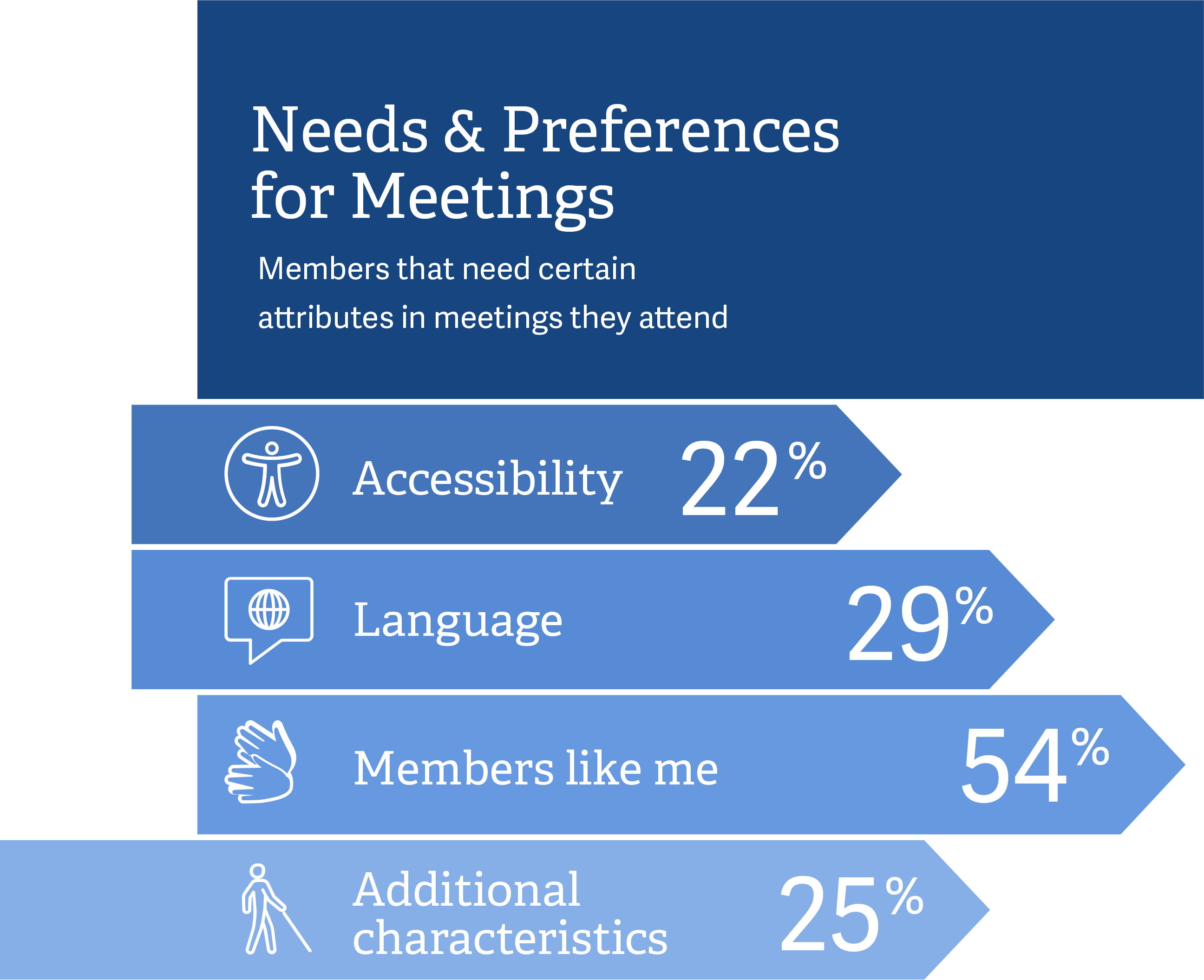

Some members may experience accessibility challenges to participation in A.A., including physical, mental, geographic, cultural, or other factors that vary among people. Whatever the access barrier may be, the goal of members and Accessibilities Committees throughout the A.A. service structure is to find solutions to help ensure every alcoholic can participate in meetings, Twelfth Step work, and service. Many groups use the Accessibilities Checklist to help assess and enhance their level of accessibility.
Some A.A. groups meet in facilities or spaces that are wheelchair accessible; some groups have an American Sign Language (ASL) interpreter; and others allow children to be in attendance, helping those members who may have childcare responsibilities. The Meeting Guide app can be used to search for child-friendly, sign language, and wheelchair accessible meetings.
There also is a variety of A.A. literature and other resources — including the Big Book, Alcoholics Anonymous — available in braille, ASL, closed captions, audio, video, and more.
The number of virtual meetings has skyrocketed in the last few years, with about three-fourths of the Fellowship surveyed in 2022 having attended at least one meeting online. Compared with in-person groups, there were more women, older people, and people with long-term sobriety attending virtual groups.

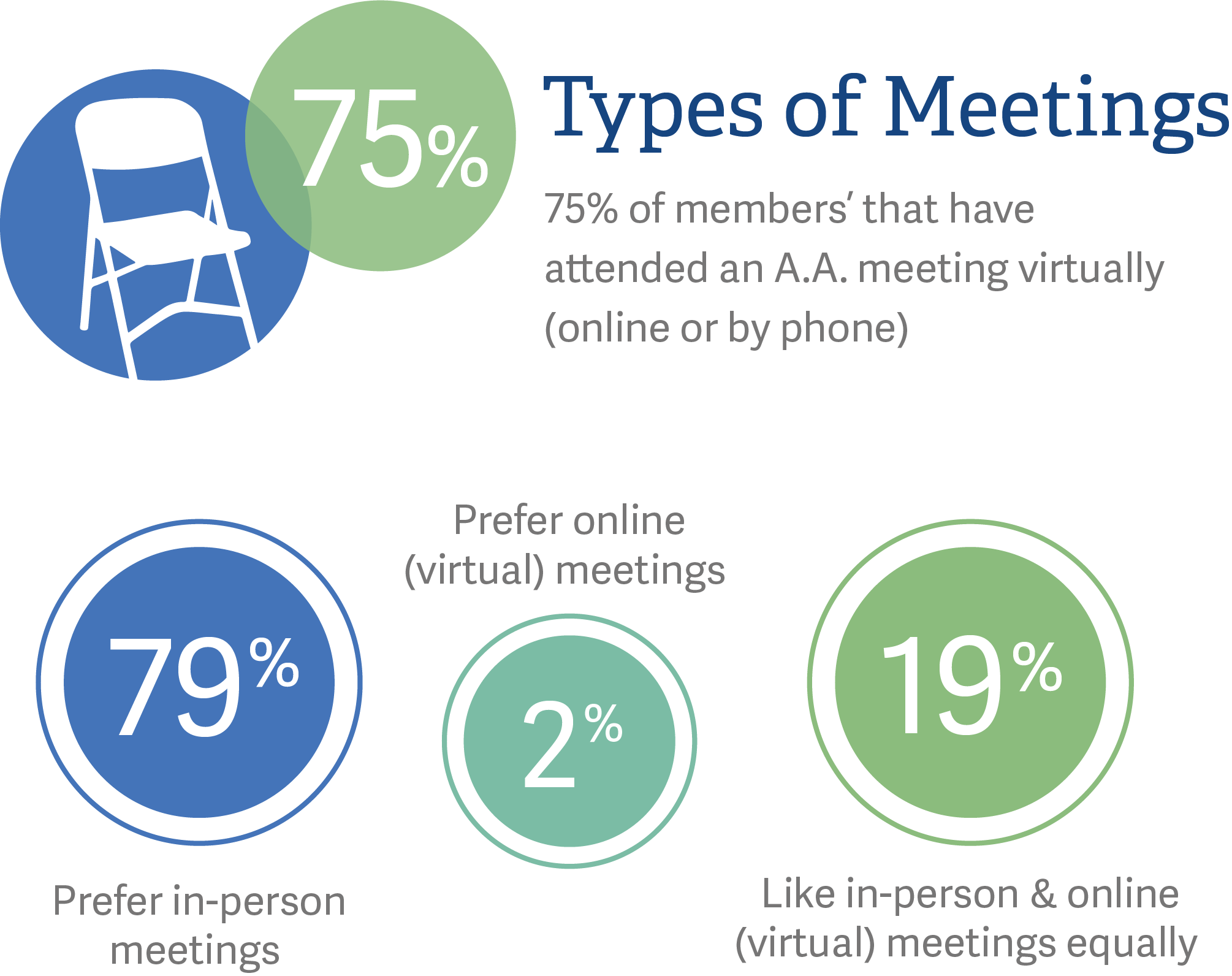

With more virtual groups popping up in the United States and Canada, these groups may be here to stay. Recognizing this new reality, for the first time the survey included virtual groups in the sampling.
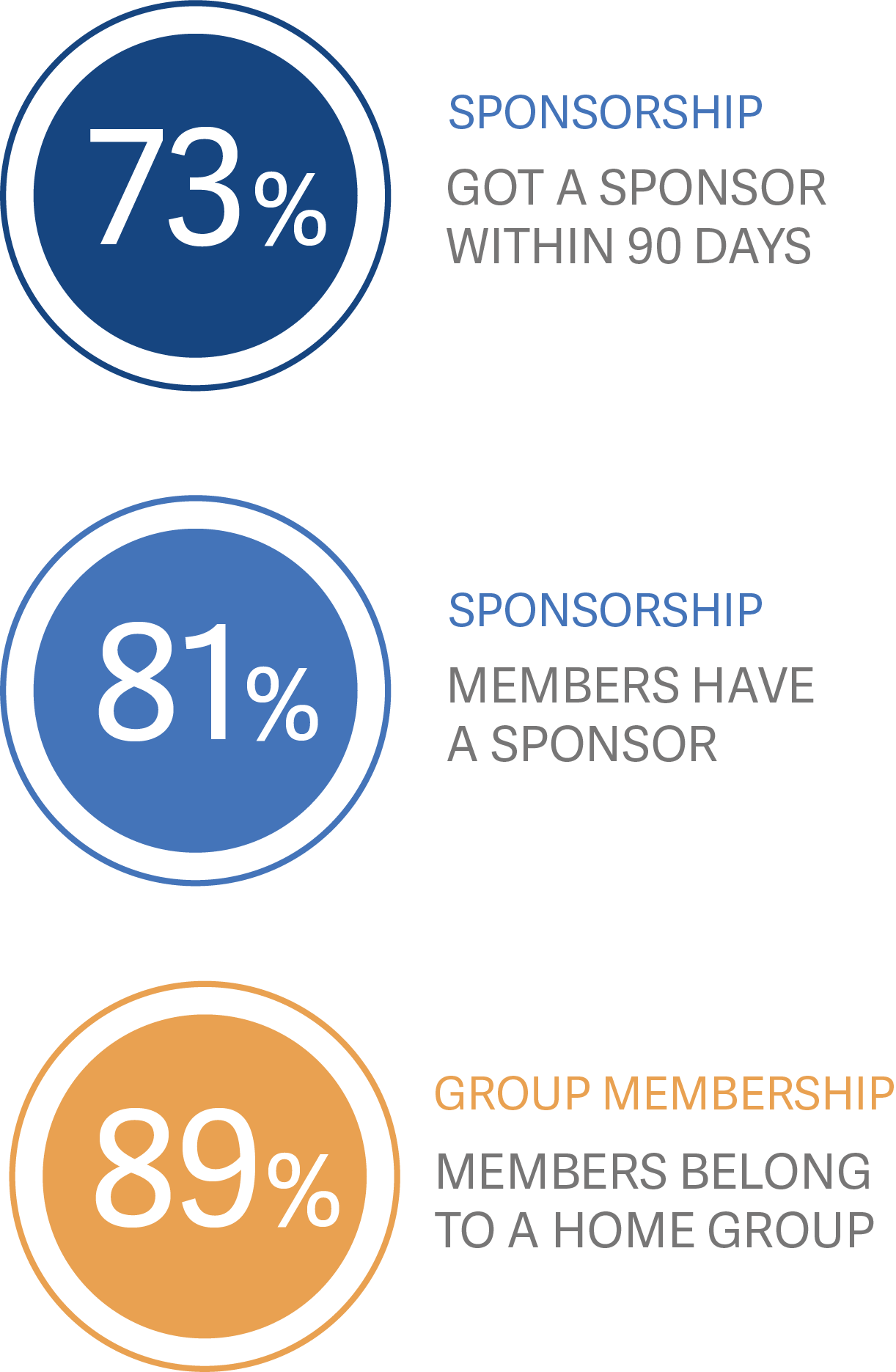

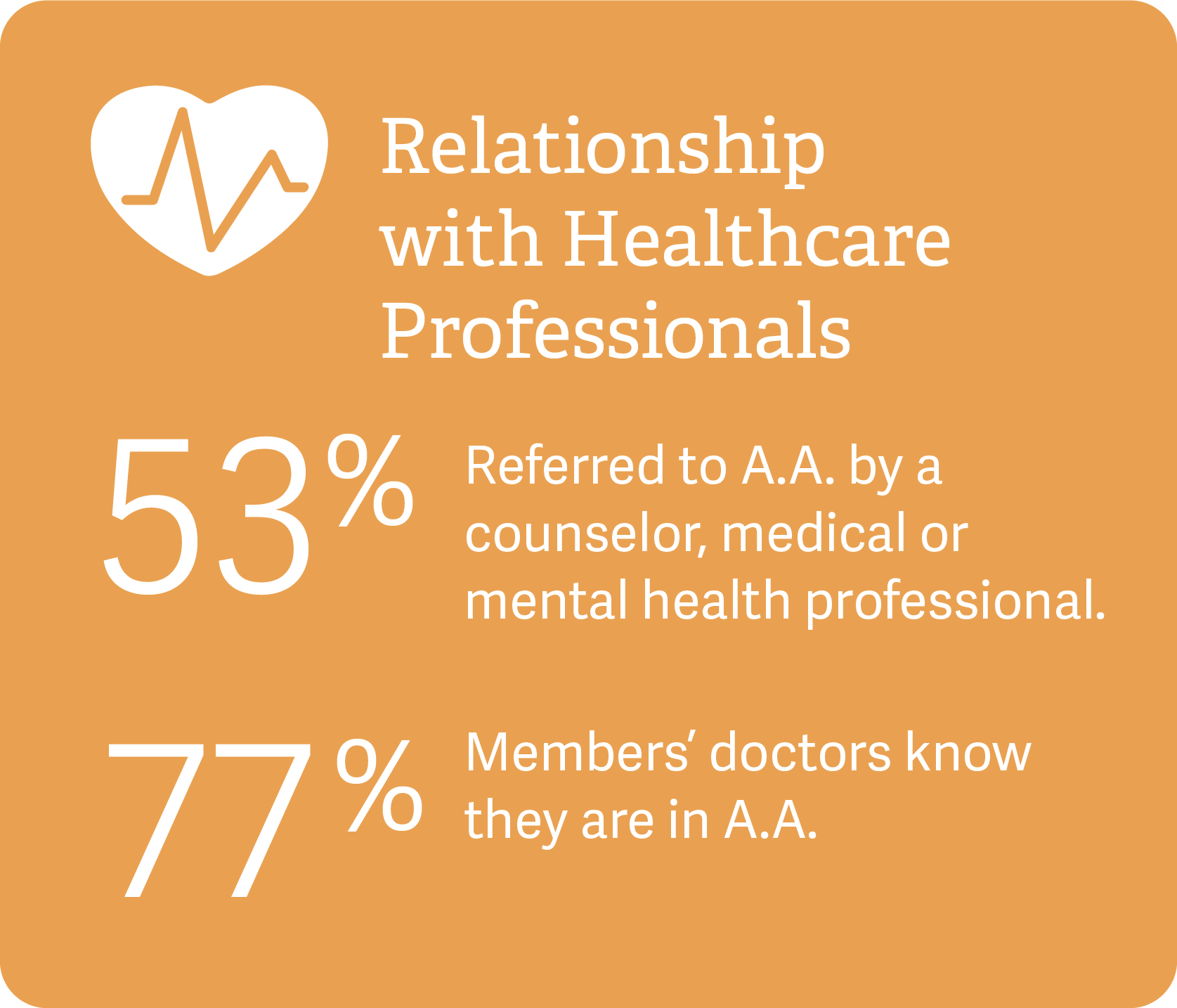

Since its founding in 1935, A.A. has cooperated with the professional community. Even co-founder Bill W. benefited from medical treatment for his alcoholism. After he had finally put together several months of sobriety, Bill returned to the hospital that helped him to work with other alcoholics, marking the beginning of A.A.’s Twelfth Step work in these types of facilities.

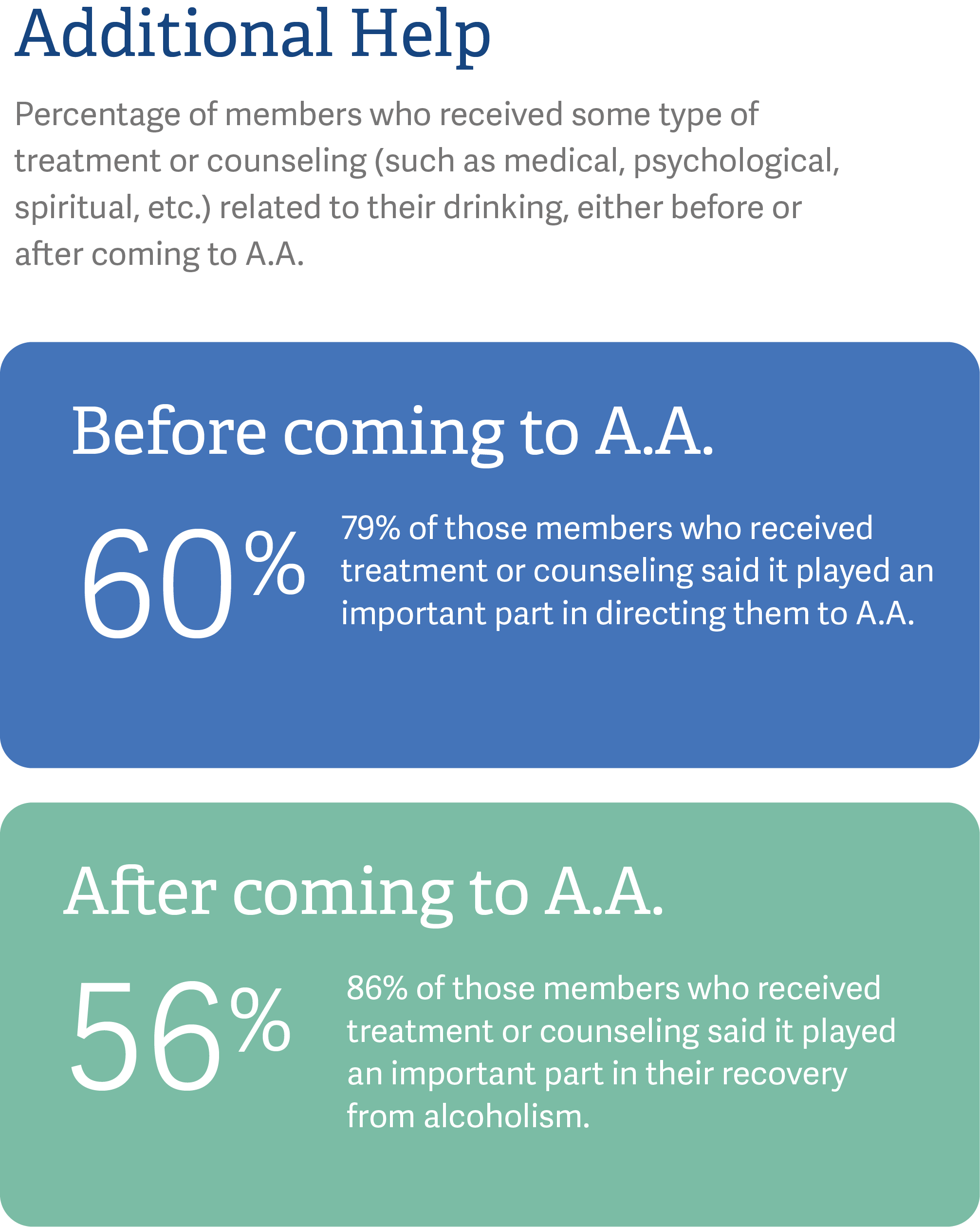

A.A. Welcomes Anyone Seeking Help for their Drinking
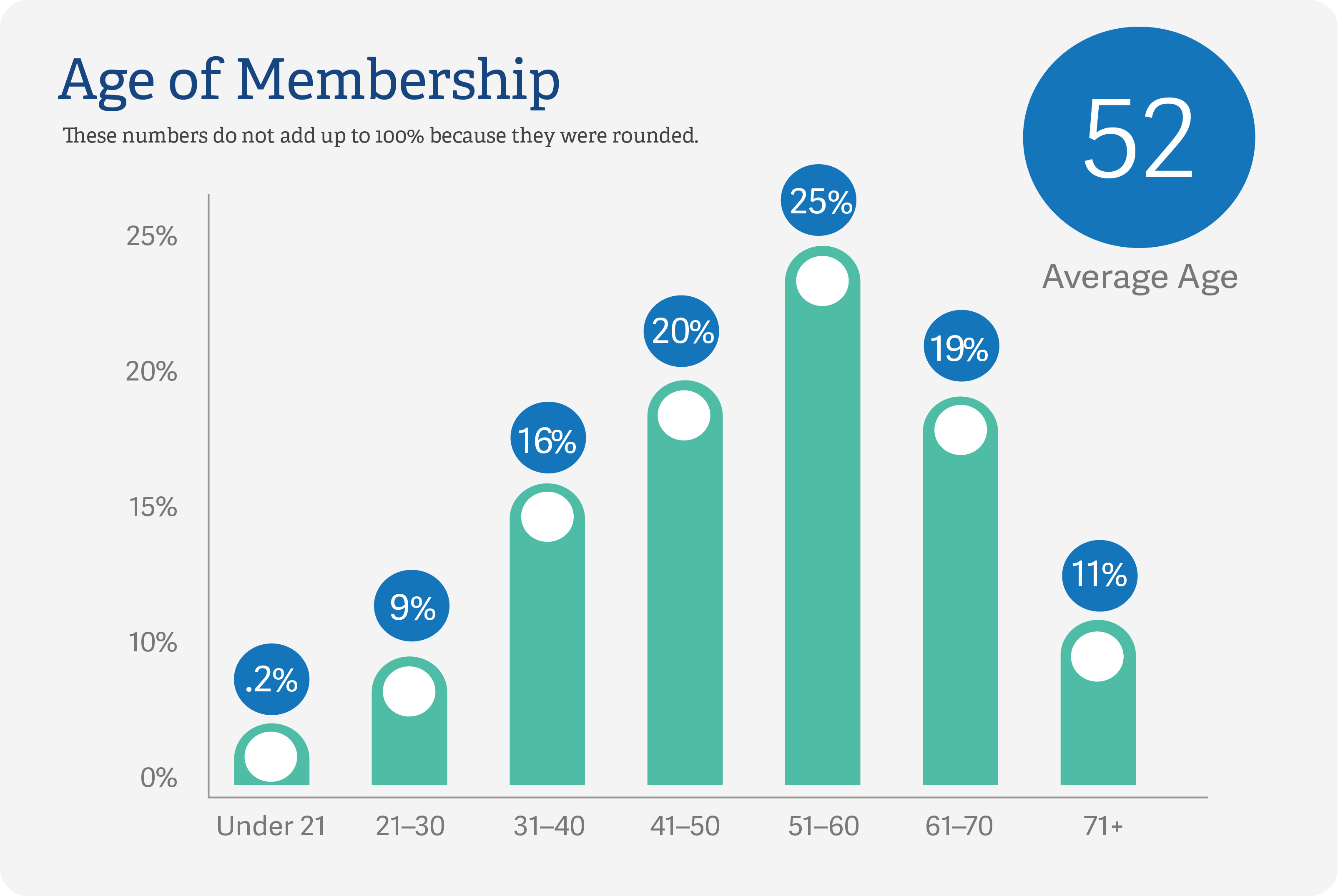
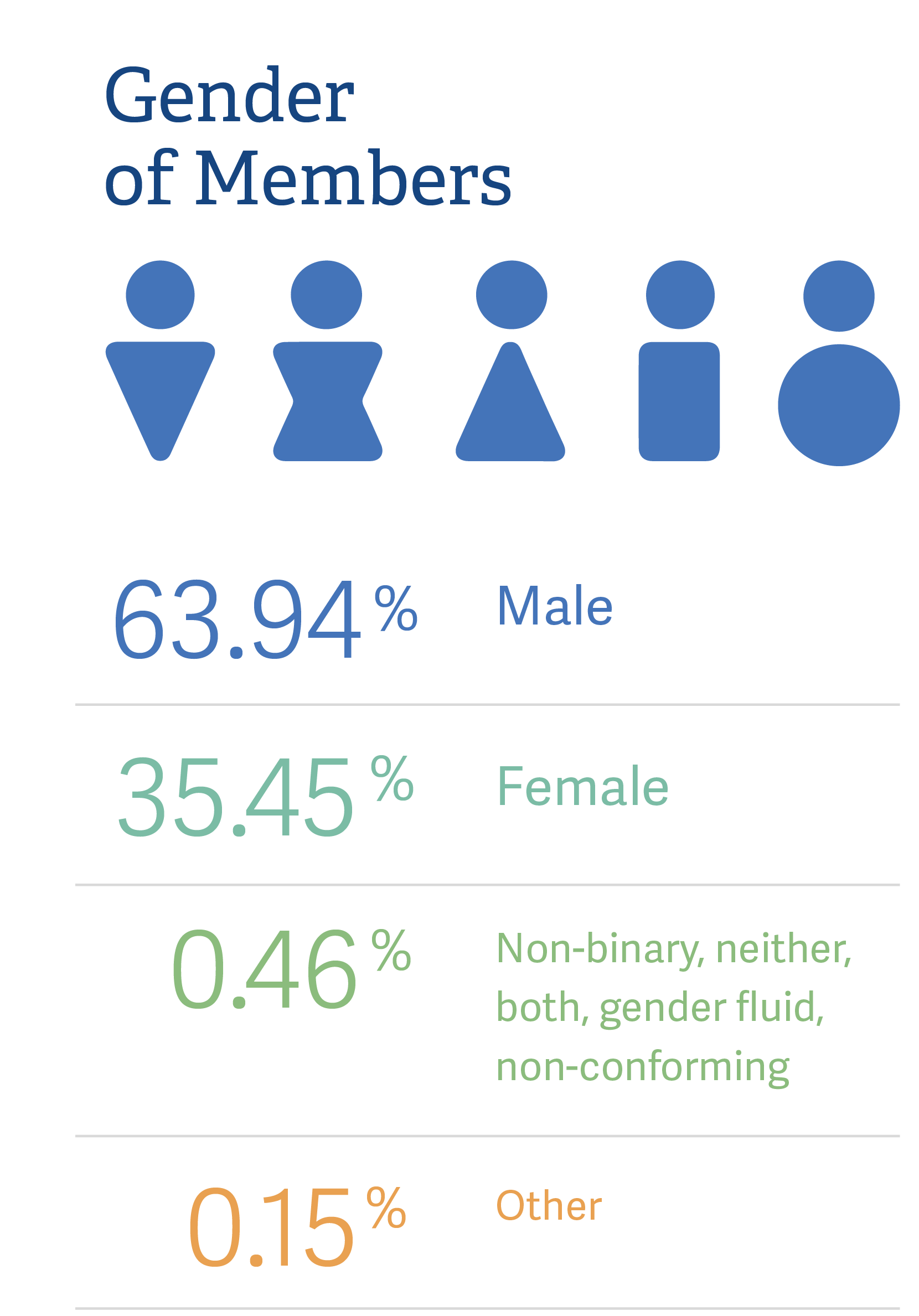
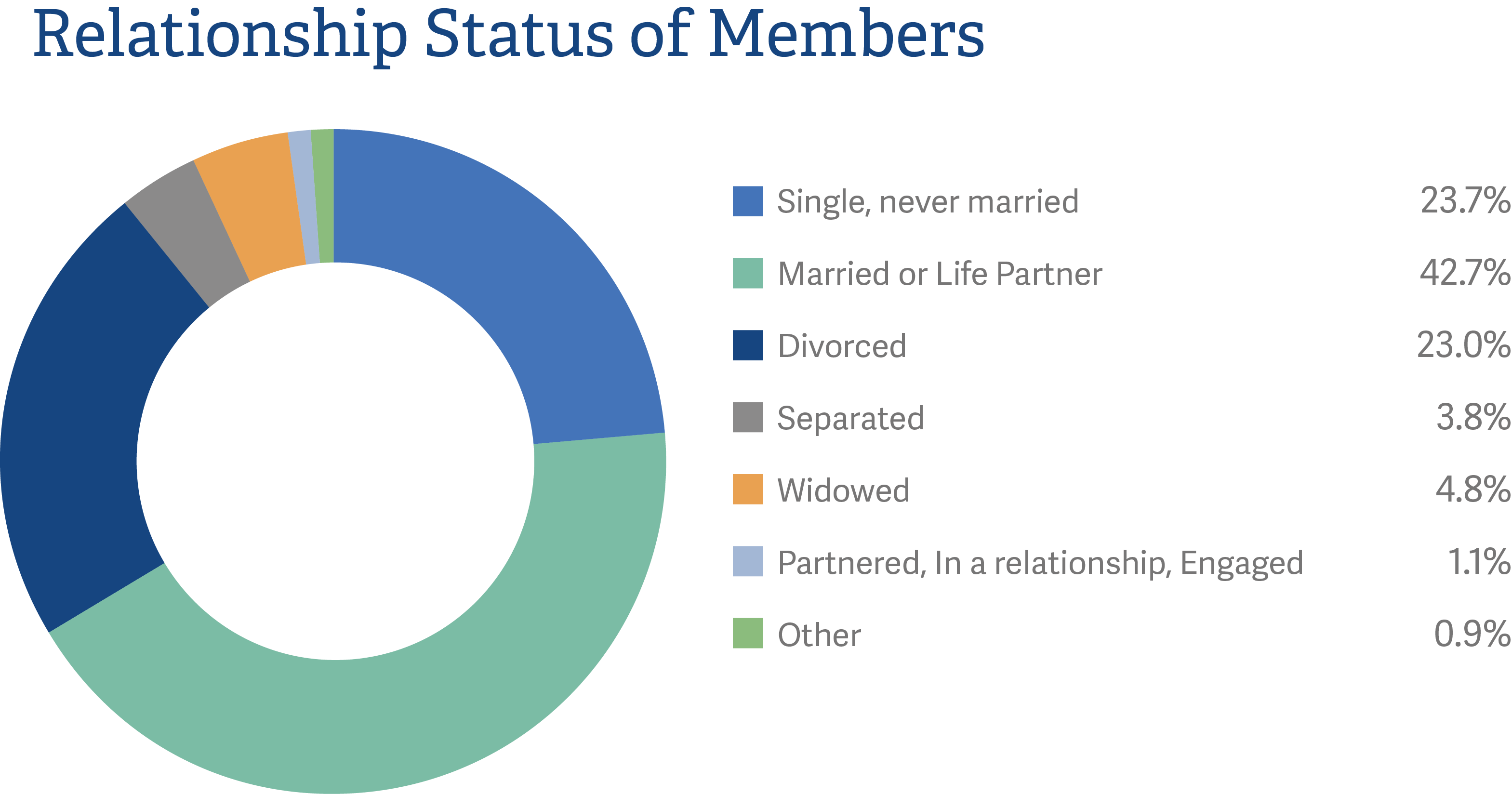
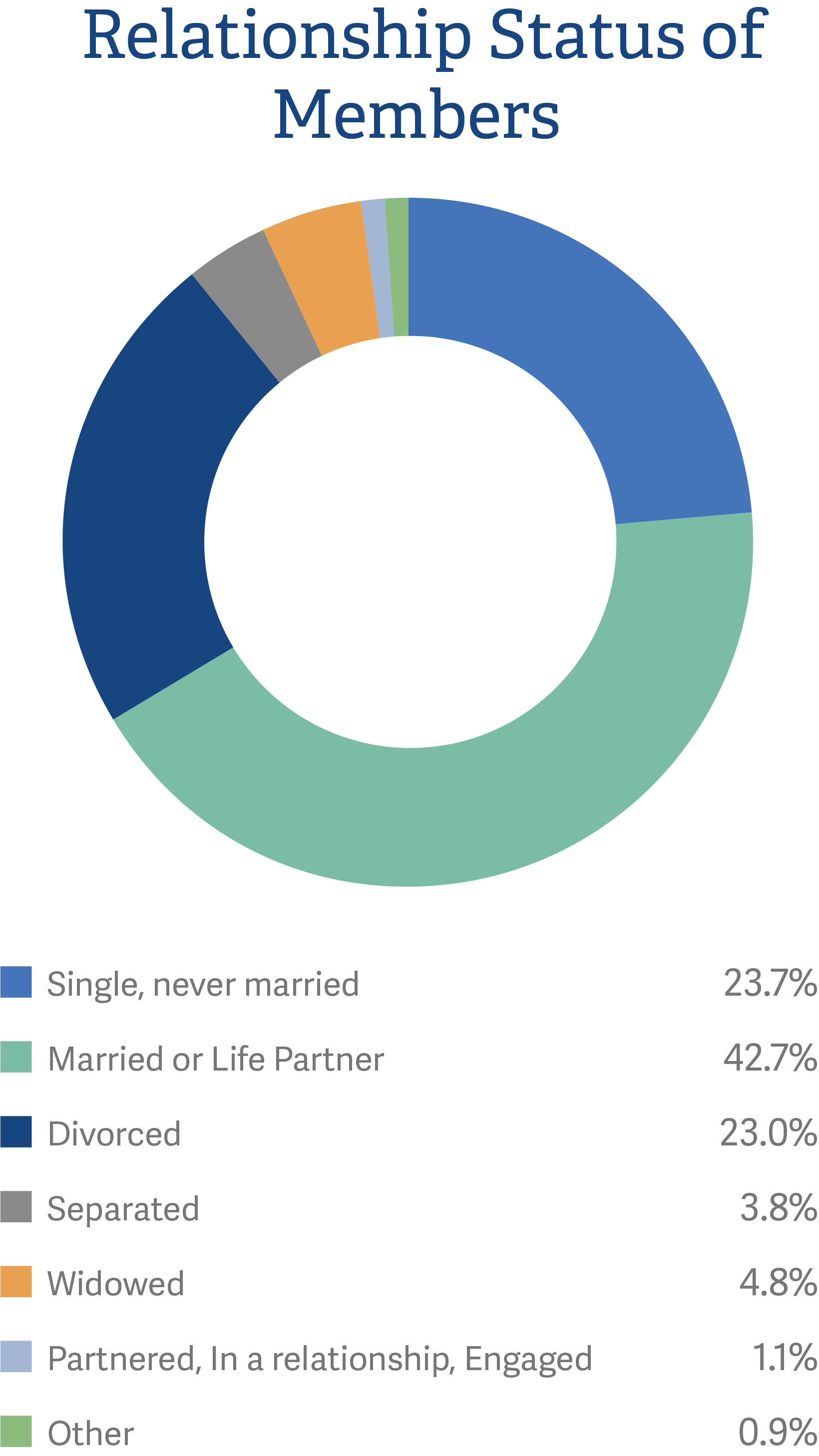

A.A. is for Everyone
Individuals from diverse groups and backgrounds have found help and hope in A.A. for their drinking problems since the founding of the Fellowship. Anyone can be a member and benefit from the A.A. program of recovery.
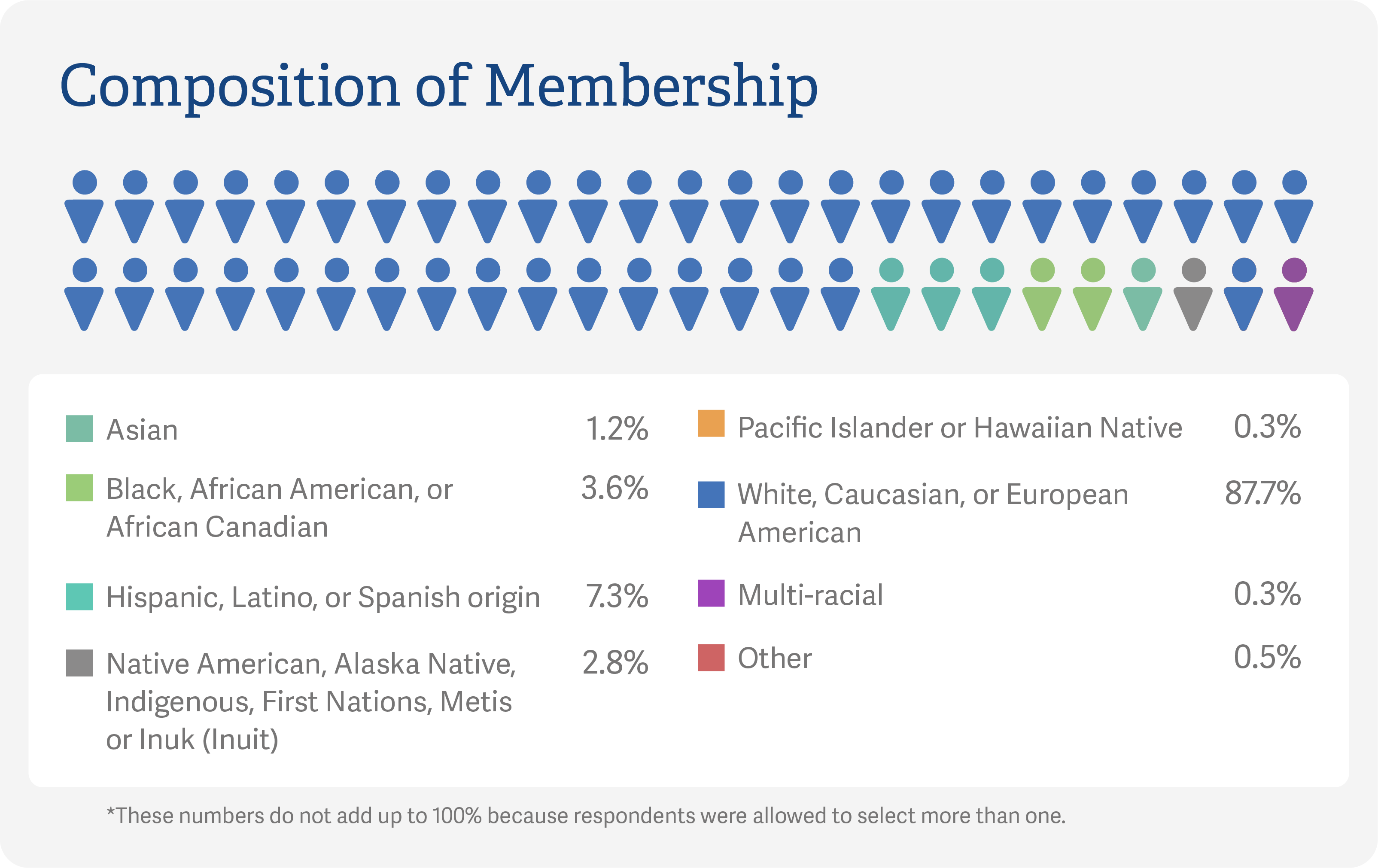
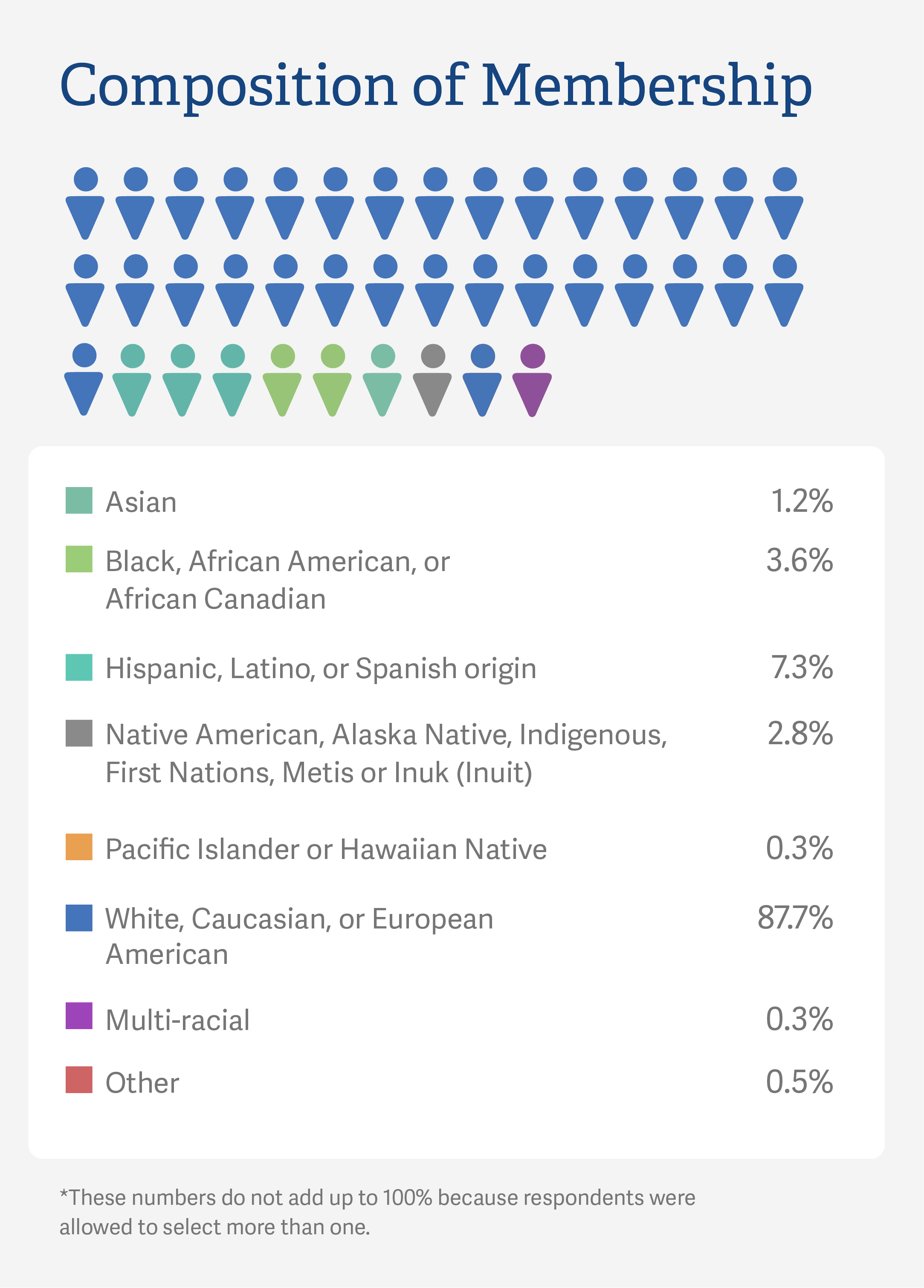

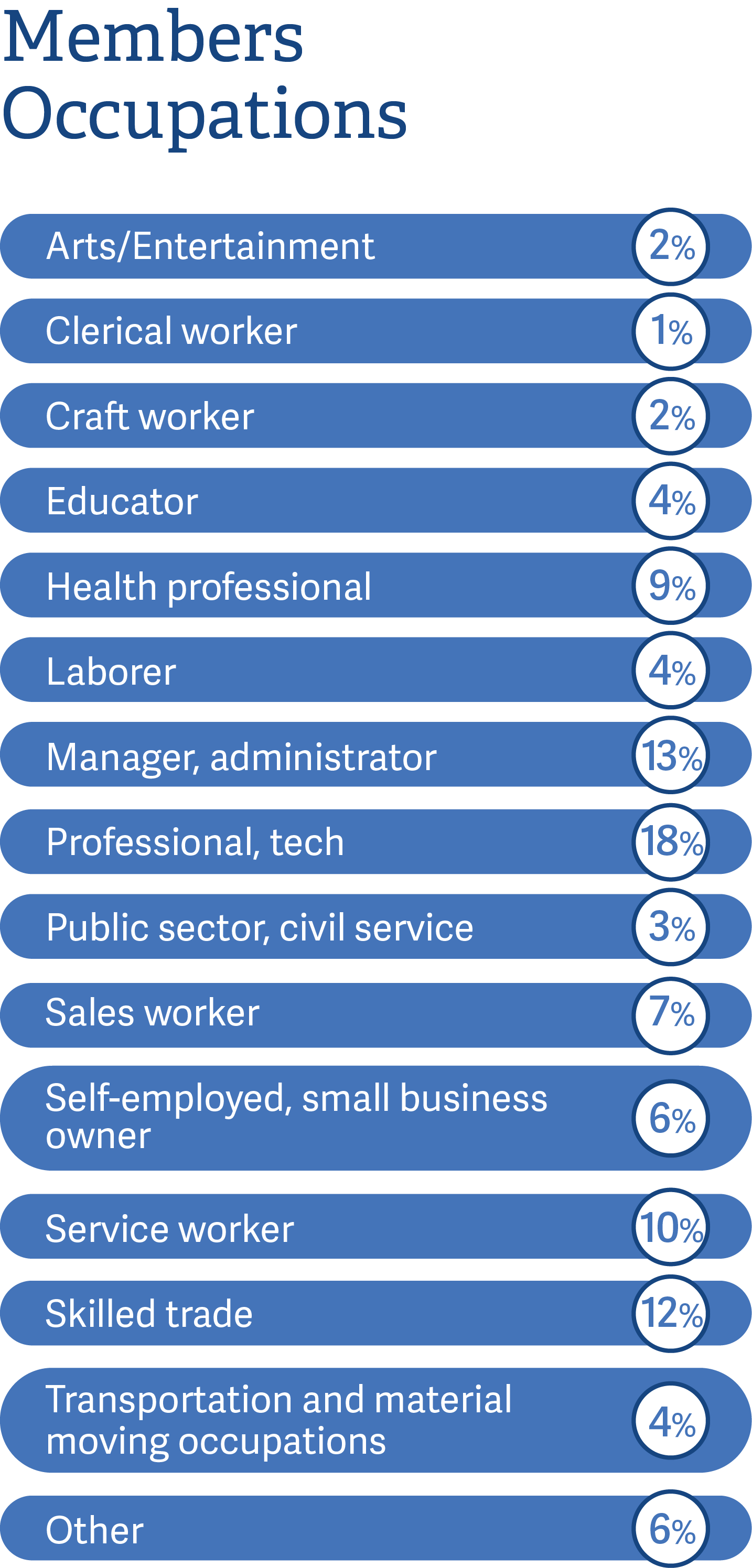
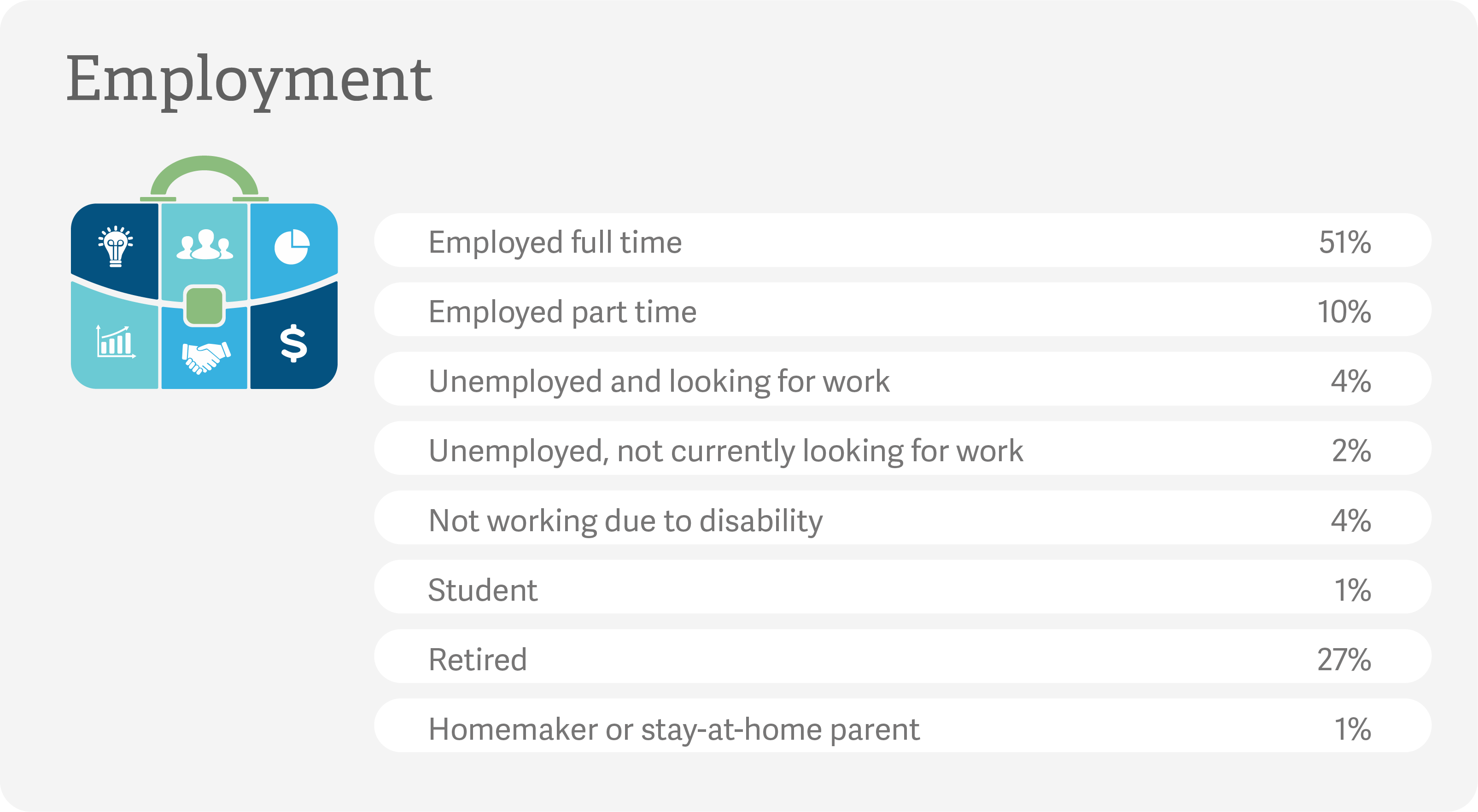
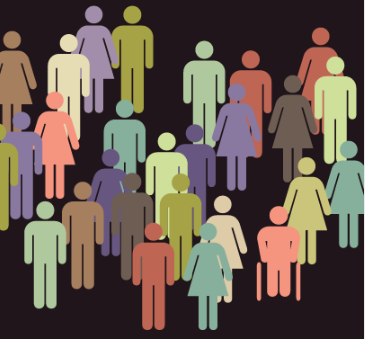
Survey Methodology
Learn more about how the survey was conducted and download survey infographics and images to customize presentations to A.A. members and for other audiences, including professionals and the media.
